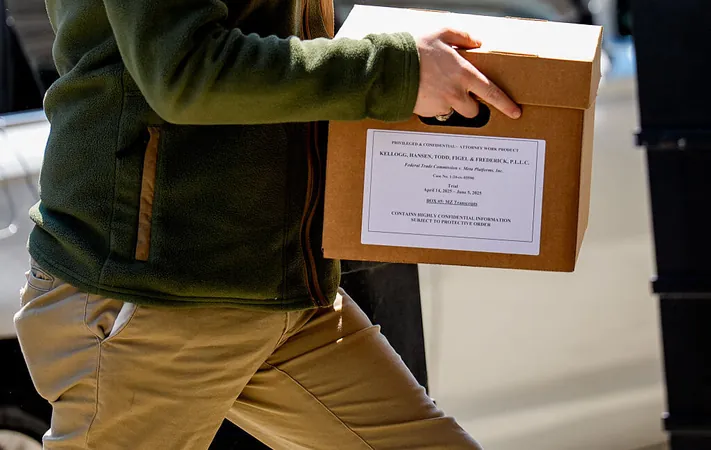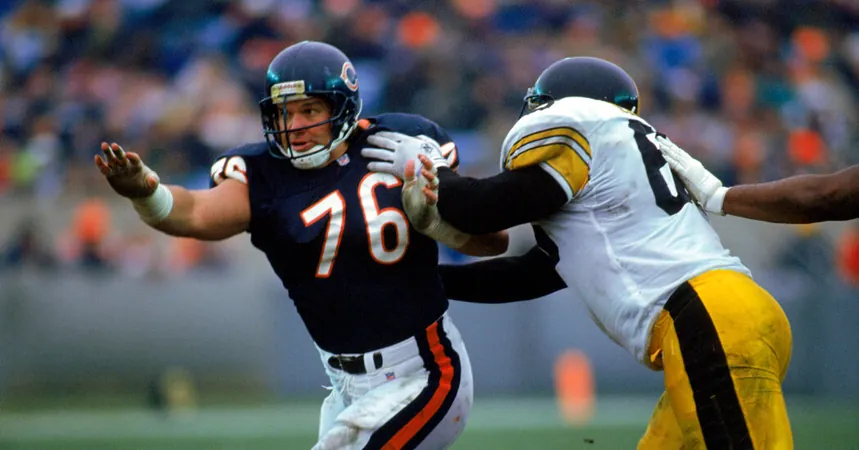
Zuckerberg's 2012 Email: The Smoking Gun in Meta's Antitrust Trial
2025-04-14
Author: Ying
Zuckerberg's Emails Shine a Light on Alleged Antitrust Violations
The Federal Trade Commission (FTC) kicked off its high-stakes antitrust trial against Meta on Monday, and already the courtroom was abuzz. The FTC's lead attorney Daniel Matheson unveiled a shocking email from 2012, in which Mark Zuckerberg suggested that acquiring Instagram would "neutralize a potential competitor." This revelation could prove pivotal in the ongoing legal battle.
But that's not all. Another explosive email cited during the trial showed Zuckerberg's admission that "Messenger isn't beating WhatsApp" and that Instagram was growing so rapidly that they felt the need to cough up $1 billion for it. Such insights could illustrate a larger strategy at play, where Zuckerberg appears to prioritize buying competitors over fair market competition.
The Case Against Meta: A Decade of Allegations
The FTC aims to convince the court that Zuckerberg hasn't just run Meta; he's orchestrated a series of acquisitions intended to stifle competition. Messaging from Zuckerberg also hints at attempts to acquire Snapchat for $6 billion, further highlighting his strategy to eliminate rivals.
Matheson argues that Meta has fundamentally disregarded the spirit of fair competition in favor of acquisitions, claiming that this behavior constitutes a breach of antitrust laws. As the FTC attempts to demonstrate that Meta's dominance was directly achieved by purchasing Instagram and WhatsApp, lawyers note that reversing mergers approved years ago is unprecedented.
Implications of the Trial: Is a Breakup Coming?
Zuckerberg's testimony may prove critical, as he could be grilled for hours about these controversial emails. The FTC is tasked with showing that Meta's acquisitions harmed both consumers and the marketplace—something that many believe could lead to a breakup of the company if proven.
Meta's legal team, however, is preparing to counter these claims with a defense focused on the argument that Zuckerberg's historic intent is insufficient evidence of malpractice. In fact, they label the FTC's case as across-the-board political maneuvering, an assertion that suggests the lawsuit is an attack fueled by spite against a successful tech giant.
The Stakes Are High for Meta
Should the FTC prevail, the repercussions could be devastating: a forced split from Instagram and WhatsApp could cripple Meta's revenue streams, particularly as Instagram is projected to contribute over half of Meta's U.S. ad revenue by 2025.
The trial is expected to unfold over eight weeks, with significant testimonies from former executives and co-founders likely to take center stage. The eventual unveiling of the full gamut of emails and evidence will illuminate Meta’s internal workings, possibly serving as a turning point.
Meta Defends Itself Amidst Growing Competition
In the courtroom, Meta has made it clear that they view the FTC's motives as misguided. They argue that the landscape of social media is evolving rapidly, claiming fierce competition from platforms like TikTok and others makes it clear that they are not the monopolistic force the FTC depicts.
With criticism mounting against the FTC's approach, including their focus on a so-called "ad load theory" to suggest that Meta is degrading quality post-acquisitions, Meta's representatives are poised to argue that their integrations have led to improvements in both Instagram and WhatsApp, not degradation.
Future of Tech Hangs in the Balance
As the trial unfolds, the tech world watches closely. Any decision made could have ripple effects throughout the entire industry, influencing how companies approach acquisitions and compete in a marketplace already ripe for disruption.
The outcome not only affects Meta but could redefine antitrust laws and market dynamics for years to come. With every day that passes, the stakes grow higher—for Zuckerberg, for Meta, and for the entire tech ecosystem.


 Brasil (PT)
Brasil (PT)
 Canada (EN)
Canada (EN)
 Chile (ES)
Chile (ES)
 Česko (CS)
Česko (CS)
 대한민국 (KO)
대한민국 (KO)
 España (ES)
España (ES)
 France (FR)
France (FR)
 Hong Kong (EN)
Hong Kong (EN)
 Italia (IT)
Italia (IT)
 日本 (JA)
日本 (JA)
 Magyarország (HU)
Magyarország (HU)
 Norge (NO)
Norge (NO)
 Polska (PL)
Polska (PL)
 Schweiz (DE)
Schweiz (DE)
 Singapore (EN)
Singapore (EN)
 Sverige (SV)
Sverige (SV)
 Suomi (FI)
Suomi (FI)
 Türkiye (TR)
Türkiye (TR)
 الإمارات العربية المتحدة (AR)
الإمارات العربية المتحدة (AR)